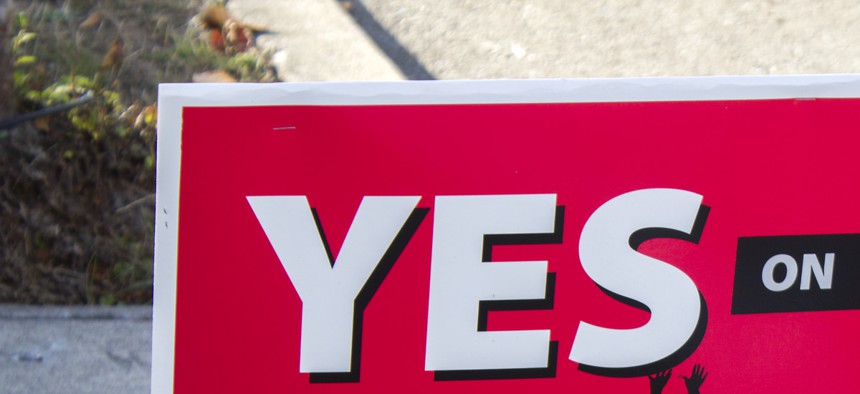Will Berkeley’s Soda Tax Pop Up in Other Cities and States?

Berkeley's Measure D passed with 75 percent of the vote on Tuesday. Flickr user Quinn Dombrowski via CC by-SA 2.0

Connecting state and local government leaders
A similar measure in San Francisco failed on Tuesday after intense industry spending to defeat it.
LOS ANGELES — After voters in the Northern California city of Berkeley voted overwhelmingly to pass a new soda tax on Tuesday, health and industry experts are debating whether the results will signal a new national trend to curb the sales of sugary beverages.
"Berkeley has a proud history of setting nationwide trends, such as non-smoking sections in restaurants and bars, curb cuts for wheelchairs, curbside recycling and public school food policies," Vicki Alexander, a co-chair of the Berkeley Healthy Children Coalition, which supported Measure D, said in a statement.
While Berkeley’s first-in-the-nation soda tax proposal passed comfortably with 75 percent of the vote, according to final counts released Wednesday, a similar measure across the bay in San Francisco failed to secure the two-thirds majority needed for passage there on Tuesday.
But supporters in San Francisco say it was a symbolic victory in its own right because Proposition E garnered support from 55 percent of voters.
Both measures were opposed by the American Beverage Association, which poured millions into each city, $9.1 million in San Francisco and $2.4 million in Berkeley, respectively. The money spent against the measure in Berkeley equals about $27 per voter, according to Reuters.
Despite the mixed results on Tuesday, the ABA went on the offensive, arguing that the results in Berkeley were an anomaly and making a thinly veiled threat to lawmakers who might be considering support for similar ballot initiatives in other cities and states.
“Berkeley is unlike the rest of the country,” ABA spokesman Chris Gindlesperger said, according to Politico. “Berkeley doesn’t look like mainstream America,” he added. “If politicians want to stake their political reputation on this, they do so at their own risk.”
The ABA was not only trying to fight the potential momentum created by soda tax victories in either San Francisco or Berkeley, they were also fighting against some powerful statistical evidence that these taxes have a measurable impact on the public’s soda-buying habits.
For example, a 2012 study by the University of California-San Francisco concluded that a one penny national sales tax on sweetened drinks would eliminate 100,000 cases of heart disease, 8,000 strokes and 26,000 deaths over the next decade while simultaneously generating $13 billion in tax revenue and reducing $17 billion in related health care costs. And Pepsi says its sales in Mexico have dropped by 3 percent since that country adopted its own soda tax earlier this year.
Supporters of the soda tax in San Francisco only managed to raise about $250,000, which was likely in large part due to the steep two-thirds majority required for passage. The 2-cent proposed tax in San Francisco was also larger than Berkeley’s own 1-cent version.
Berkeley’s Measure D received substantially more support, including $650,000 from former New York City Mayor Michael Bloomberg, who even purchased an ad that ran during the recent World Series between the San Francisco Giants and Kansas City Royals. The American Heart Association, American Academy of Pediatrics and the NAACP also endorsed the Berkeley tax measure.
Berkeley’s sugary drink tax goes into effect on Jan. 1, 2015, and will not be applied to diet sodas.
(Photo by Flickr user Quinn Dombrowski via CC by-SA 2.0)




